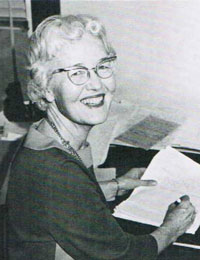
L-r: Russell Brand, Julianne Hough, Mary J. Blige, Catherine Zeta-Jones, Tom Cruise, Paul Giamatti, Alec Baldwin, Malin Akerman, Diego Boneta (click to enlarge).
When I saw the trailer to “Rock of Ages,” I knew it was a must-see movie for me. I’ve always been partial to musicals, especially rock musicals. “Rock of Ages” delighted me in every respect.
For me, the plot of musicals is almost insequential, which explains my fondness for “Rocky Horror Picture Show.” I just love seeing talented people perform good songs. I never get tired of “Grease” (1978) or “Blues Brothers” (1980). The 2000s have seen some really enjoyable, and sometimes critically acclaimed, musicals: “Chicago” (2002), “Phantom of the Opera” (2004), “Rent” (2005), “Hairspray” (2007), “Enchanted” (2007), and “Mamma Mia!” (2008). At least, those are the ones I’ve seen. (I don’t count 2003’s “School of Rock” as a musical. It’s about music, but not a musical.)
“Rock of Ages,” like many movie musicals, originated as a Broadway show–in this case, a fairly recent one, debuting in 2006. It’s got a high-calibre cast, especially with Tom Cruise in the role of rock god Stacee Jaxx. If it’s a Broadway show, you can expect the quality of music to be very high. “Rock of Ages,” however, doesn’t use original music. Nearly every song is from the 1980s, mostly power ballads from big-hair bands. But they give the songs some neat twists, including a few excellent mash-ups a la Glee.
Here’s the plot.
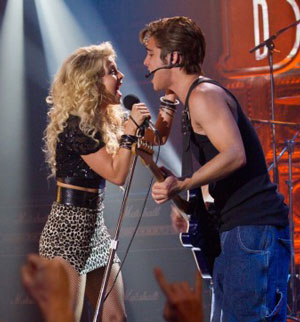
Hough and Boneta singing.
Sherrie (Julianne Hough), an innocent girl from Oklahoma, arrives in Hollywood to chase her not-quite-defined dreams. It’s 1987. She lands a waitressing job at the Bourbon Room, a rock nightclub/concert venue. There she meets fellow worker Drew (Diego Boneta), who has dreams of rock stardom. Their relationship is the core of the movie.
Dennis (Alec Baldwin) owns the Bourbon, and Lonny (Paul Brand) manages it. They are “close,” and very old school when it comes to rock. Dennis is a throwback to the 60s, with his long salt-and-pepper hair and general unkempt appearance. The Bourbon is struggling financially.
Stacee Jaxx (Tom Cruise) is a rock legend, lead singer for Arsenal. He’s giving his final Arsenal concert at the Bourbon Room before going solo. Dennis hopes the concert can get them out of the hole. Paul Giamatti plays Stacee’s sleazy manager, who “discovers” Drew when Drew fills in as a warm-up act.
Rolling Stone reporter Constance Sack (Malin Akerman) comes to the Bourbon to do a story on Stacee, and a love-hate relationship blooms. Their relationship is a second storyline.
Catherine Zeta-Jones plays Patricia Whitmore, wife of the Los Angeles mayor. She’s determined to shut down the Bourbon, and has a personal vendetta against Stacee Jaxx. That’s a third, but minor, storyline.
So, you want to know: can Tom Cruise sing? Yes he can, and he sang a lot. He made a very credible rock singer. This is the type of musical where people can break into song at any moment. The first time Tom Cruise did that, it caught me by surprise. But he did a good job.
I was hoping Cruise wouldn’t have a cringe-worthy voice, like Pierce Brosnan in “Mama Mia!” Brosnan left me in fetal position, banging my head on the theater floor, beseeching God to make it stop. This particular James Bond could NOT sing. But Ethan Hunt, from Mission Impossible, redeemed the singing superspy.
The Broadway version, I understand, played Stacee Jaxx as an overweight slob, modeled after a latter-day David Lee Roth. The movie presented a totally different Stacee Jaxx. Cruise played him as a spaced-out, seemingly drug-addled (without the drugs) exhibitionist mouthing inanities. I thought it was a superb performance. And when Jaxx was performing on stage, I had little doubt that Cruise himself could probably go on tour.
There is no nudity or obscenity. However, there is sex, or at least wild passion, done in a somewhat comical way. And there is plenty of sexual innuendo. Stacee Jaxx oozes, and is surrounded by, sexuality. And there seemed to be a lot of kissing scenes.
Tom Cruise notwithstanding, Julianne Hough is really the lead character. She won the Mirror Ball trophy twice on Dancing with the Stars, and then struck out to become a country singer, a career which turned out so-so in a Kelly Pickler kind of way. But acting is where Hough belongs. She gave her dancing skills a major workout in 2011’s remake of “Footloose,” and “Rock of Ages” spotlights her singing ability. She lacks the powerful voice of rocker chics like Joan Jett or Pat Benatar, but it worked very well in this musical. And then there’s the whole “innocent girl” look which made her perfect for this part.

Tom Cruise as Stacee Jaxx.
The movie begins with Hough’s character arriving in LA on a bus. She begins singing Night Ranger’s “Sister Christian,” and then the bus driver chimes in, then a passenger, and before long, the whole sleepy bus is singing along. It’s a great opening scene, which quickly morphs to Drew singing at the Bourbon Room. Diego Boneta, a Mexican-born actor, can really sing. I liked his chemistry with Julianne Hough, and their voices meshed well.
Catherine Zeta-Jones dominated the few scenes she was in. The most memorable was a song-and-dance number in a church, “Hit Me With Your Best Shot,” where she rallies church women against the evils of rock music. Later in the movie, she’s part of an excellent mash-up of “We Built This City” and “We’re Not Gonna Take It” (Russell Brand leading the “We Built This City” part).
I should mention, positively, the perfomances of Malin Akerman (a Swedish model, actor, and former lead singer for a rock group), and Mary J. Blige, owner of the exotic-dancing Venus Club. Akerman’s interplay with Cruise is, oddly, fascinating. Blige’s role is not developed, but it’s a pleasure to hear her sing. Also, British comic Russell Brand (he of the recent divorce from popstar Katy Perry) also had a terrific part.
My favorite mash-up was Hough and Boneta singing “Juke Box Hero” (from Foreigner) interspersed with Baldwin and Russell singing “I Love Rock ‘n’ Roll.” Very enjoyable and fun.
I counted three songs by Foreigner, and two each from Poison, Journey, and Twisted Sister. For the sake of the movie, we had to pretend that Drew wrote “Don’t Stop Believin'” (“Just a smalltown girl, living in a lonely world…”), well-known as pretty much the Glee theme song (which they mash with another Journey song, “Any Way You Want It”).
Other bands that contributed songs included Joan Jett, Guns & Roses, Pat Benatar, Warrant, Bon Jovi, Whitesnake, REO Speedwagon, the Scorpions, Starship, Extreme, and Quarterflash. Pat Benatar’s “Hit Me With Your Best Shot” was released in 1979, but every other song came from the 1980s (a couple of them later than 1987, when the story took place).
“Rock of Ages” was high energy most of the way, and all three plotlines were engaging. The climactic concert scene was not quite as climactic as it could have been, but I’m not complaining too much. I would eagerly watch “Rock of Ages” again, and I’m sure that when it reaches TV and I happen upon it while channel-surfing, I’ll stop and get sucked right in.
2 Comments

 The Macintosh II is celebrating its 25th anniversary. That was my first Mac, back in 1988. Well, it wasn’t actually mine, but for work. I, personally, owned a Mac SE, one of those all-in-one boxes.
The Macintosh II is celebrating its 25th anniversary. That was my first Mac, back in 1988. Well, it wasn’t actually mine, but for work. I, personally, owned a Mac SE, one of those all-in-one boxes.
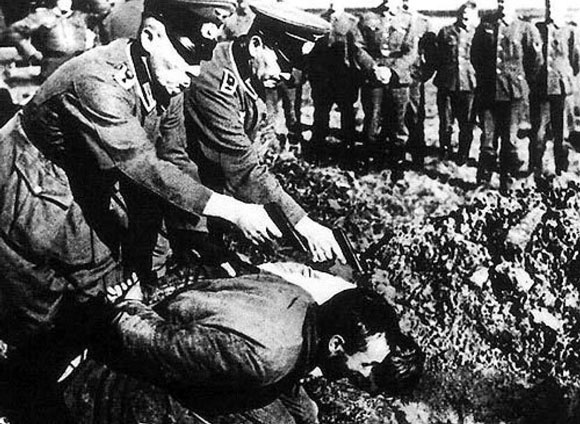
 Last night’s reading included 1 Samuel 10, where Saul is made king. And I mused about the startup costs of having a king.
Last night’s reading included 1 Samuel 10, where Saul is made king. And I mused about the startup costs of having a king.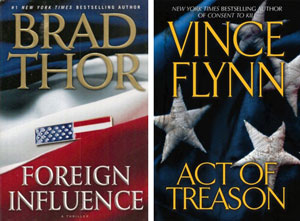 I decided I couldn’t ignore them anymore–Brad Thor and Vince Flynn. They’ve been big names in the international thriller genre since the new millennium started, but I hadn’t read any of their books. Been too focused on mysteries. They are often mentioned in the same breath. Tributes on books by other thriller writers will say stuff like, “In the same class as Flynn and Thor.” Peas in a pod.
I decided I couldn’t ignore them anymore–Brad Thor and Vince Flynn. They’ve been big names in the international thriller genre since the new millennium started, but I hadn’t read any of their books. Been too focused on mysteries. They are often mentioned in the same breath. Tributes on books by other thriller writers will say stuff like, “In the same class as Flynn and Thor.” Peas in a pod.

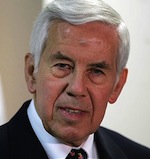 Dick Lugar didn’t go quietly into the night. After losing last night’s primary for his Senate seat to a Tea Party guy, Lugar released a lengthy statement giving his thoughts about the polarization which engulfs Washington…and which his opponent, if elected in the fall, will deepen. It was a wonderful statement, filled with common sense counsel. Evan Bayh, in giving up his Senate seat two years ago, said much the same thing. Indiana, then, was blessed with two senators–one Republican, the other Democrat–who were committed to getting things done and to working with the Other Side. But they, Statesmen, have become dinosaurs.
Dick Lugar didn’t go quietly into the night. After losing last night’s primary for his Senate seat to a Tea Party guy, Lugar released a lengthy statement giving his thoughts about the polarization which engulfs Washington…and which his opponent, if elected in the fall, will deepen. It was a wonderful statement, filled with common sense counsel. Evan Bayh, in giving up his Senate seat two years ago, said much the same thing. Indiana, then, was blessed with two senators–one Republican, the other Democrat–who were committed to getting things done and to working with the Other Side. But they, Statesmen, have become dinosaurs.